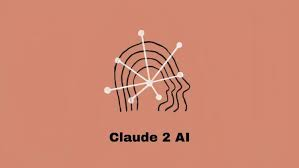Claude : the real threat to ChatGPT
In the rapidly evolving world of artificial intelligence, the field of natural language processing has witnessed significant advancements. One of the most prominent players in this domain is ChatGPT, a language model developed by OpenAI. Its capabilities to generate human-like responses have made it a widely used tool across various industries. However, lurking in the shadows is a formidable challenger named Claude, a revolutionary AI language model poised to disrupt the status quo and reshape the landscape of human-machine interactions.
The Genesis of Claude
Developed by a team of dedicated researchers, Claude emerged as an ambitious project with a vision to surpass the limitations of current language models. Unlike ChatGPT, which is based on GPT-3.5 architecture, Claude adopts an innovative and proprietary neural network design that enables it to delve deeper into understanding the nuances of language.
Understanding Context and Intent
While ChatGPT has certainly made great strides in interpreting context, Claude takes it a step further. Equipped with a more extensive data corpus, Claude can better comprehend the context and intent behind a given conversation. This enables Claude to generate responses that are not just accurate but also imbued with a higher level of human-like understanding.
- Natural Flow of Conversation : One of the areas where Claude has a distinct advantage over ChatGPT is its ability to maintain a more natural flow of conversation. Through its deep learning capabilities, Claude can remember past interactions and responses, ensuring a more coherent and contextually consistent dialogue. This is a crucial aspect that significantly enhances user engagement and satisfaction.
- Emotional Intelligence
While ChatGPT can mimic human-like responses to some extent, Claude aims to surpass this limitation by incorporating emotional intelligence into its model. Understanding emotions and empathizing with users, Claude can provide more appropriate and sensitive responses. This gives it a crucial edge in applications such as virtual companions, therapy bots, and customer support.
Data Privacy and Security
Another critical area where Claude shines is in data privacy and security. Unlike some AI language models that store user data indefinitely, Claude operates on a state-of-the-art privacy framework. It employs advanced data anonymization techniques, ensuring that user interactions remain completely confidential and are not used for any unauthorized purposes.
Adaptability and Customizability
While ChatGPT offers a one-size-fits-all approach, Claude allows developers and organizations to customize its neural network architecture according to their specific requirements. This adaptability ensures that Claude can be seamlessly integrated into various applications, providing tailored and efficient solutions.
The Ethical Approach
One of the primary concerns surrounding AI language models is the potential for biases in generated content. Claude's development team has taken a stringent ethical approach by meticulously curating its training data and employing rigorous bias-checking mechanisms. This ensures that Claude remains a responsible and unbiased AI companion.
Conclusion
As the AI landscape continues to evolve, it becomes evident that Claude poses a real threat to ChatGPT's dominance. With its superior contextual understanding, natural conversation flow, emotional intelligence, data privacy, and ethical approach, Claude is a groundbreaking language model that pushes the boundaries of human-machine interactions. As AI technology progresses, we can expect more exciting developments, but for now, Claude stands as a promising contender in the quest for ever-more advanced AI language models.



Comments
Post a Comment